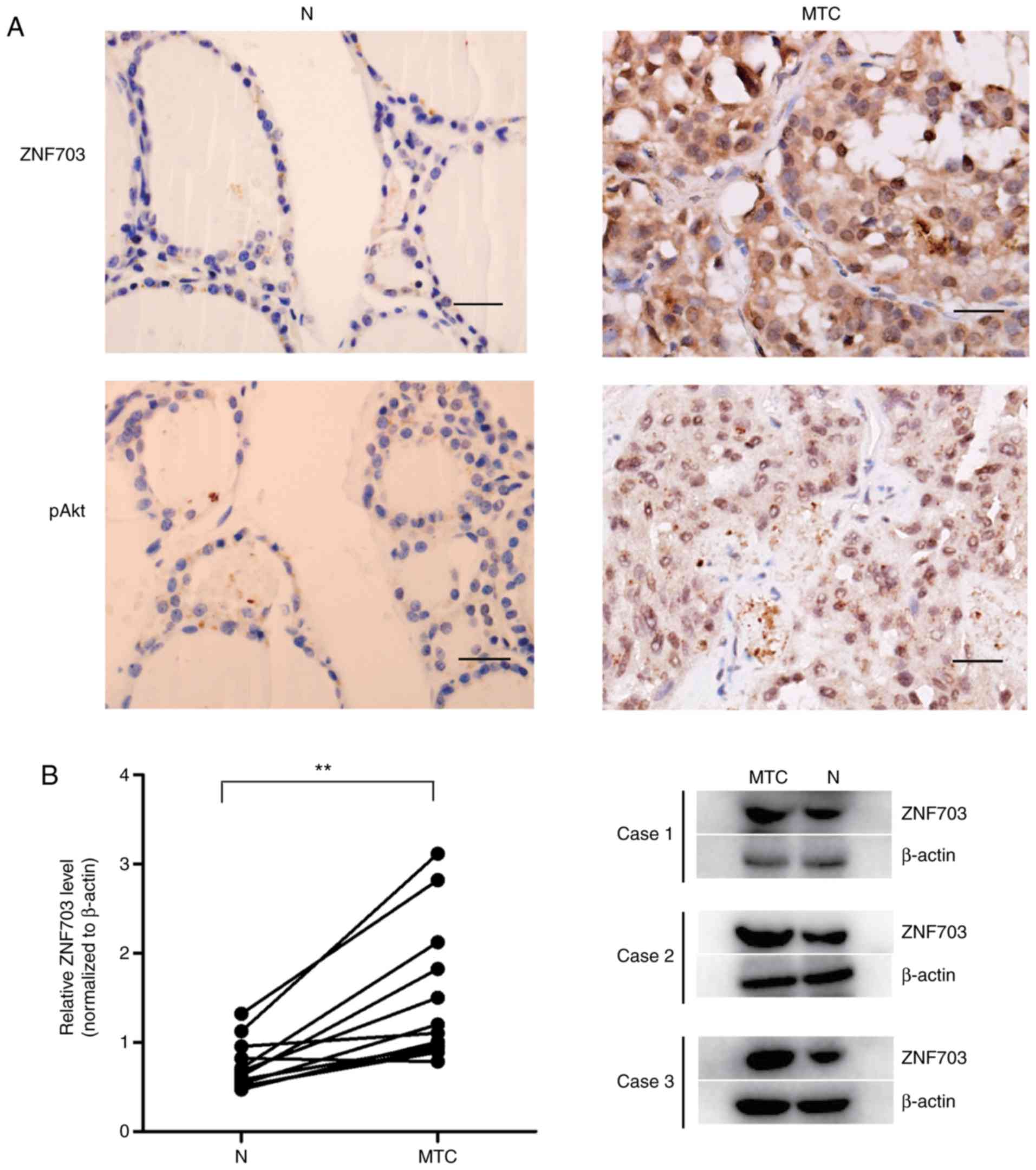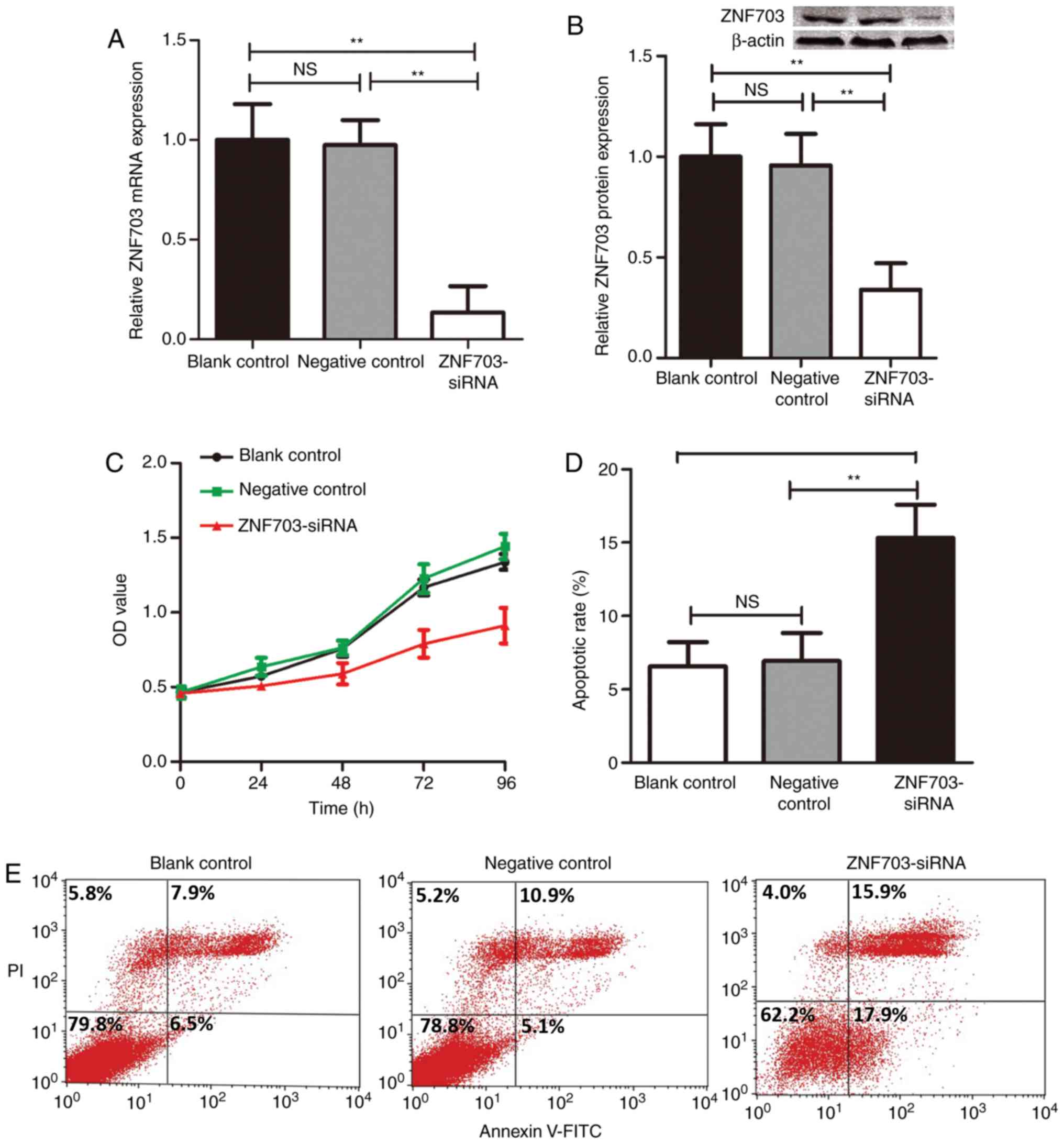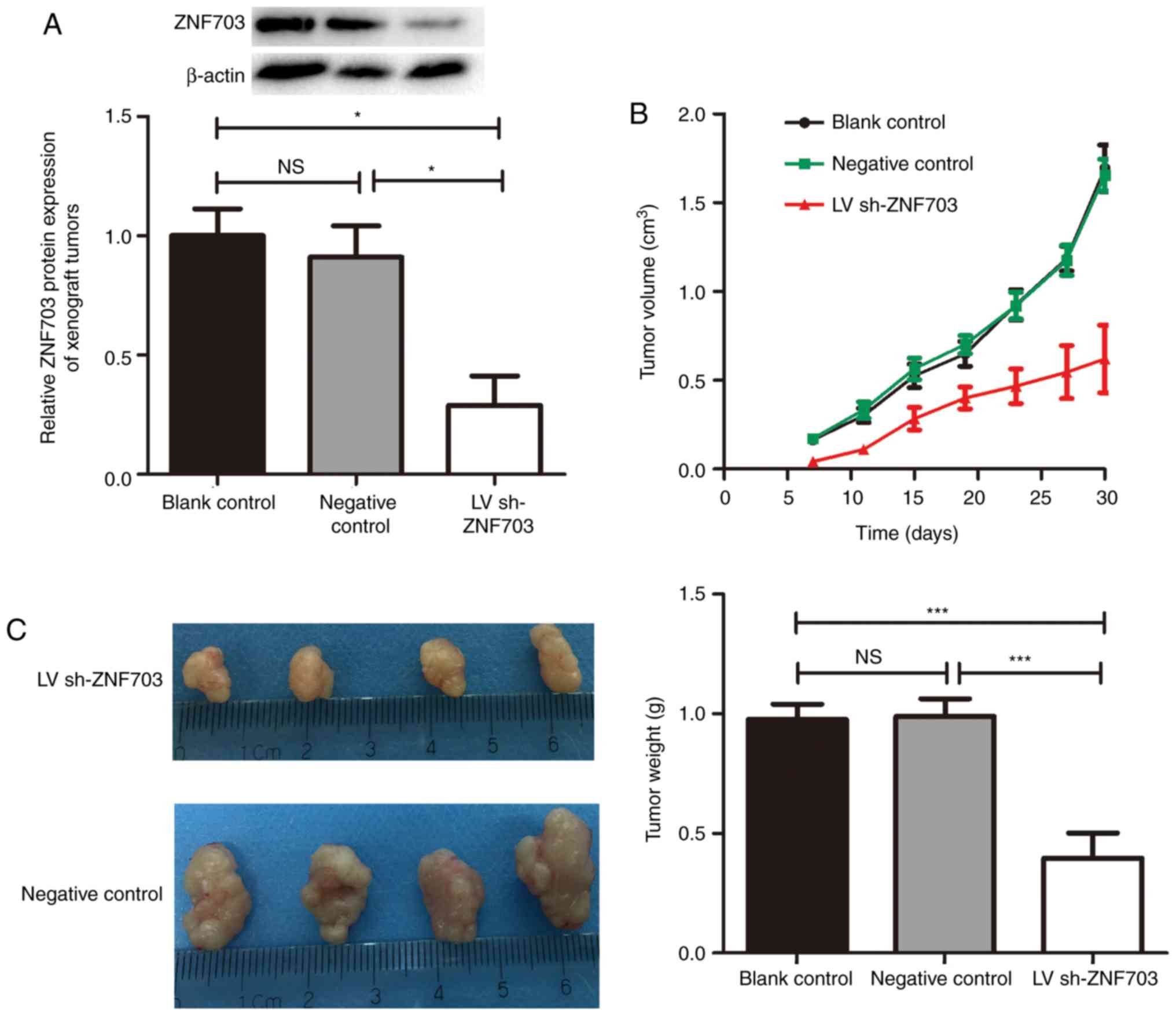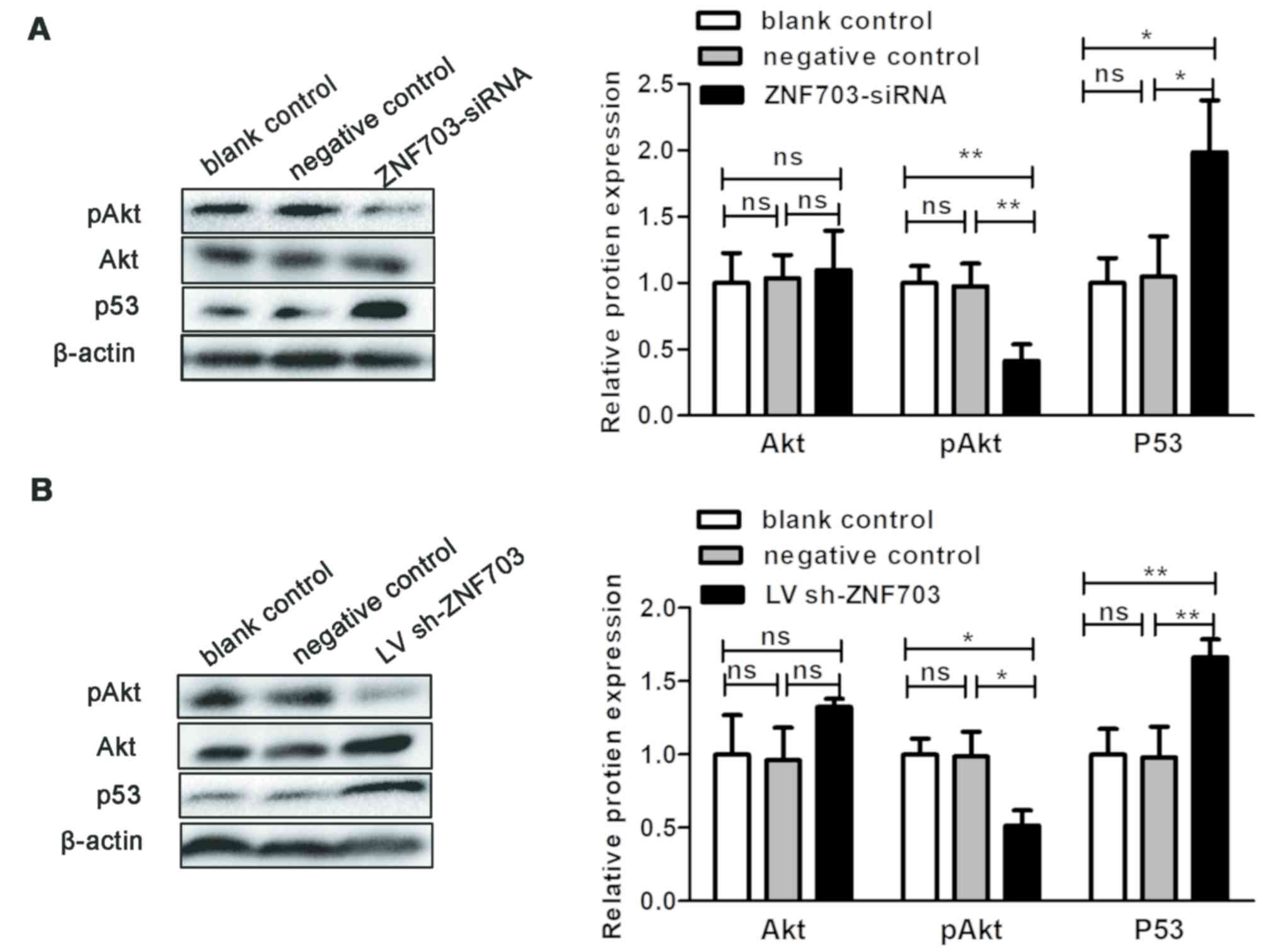|
1
|
Pellegriti G, Frasca F, Regalbuto C,
Squatrito S and Vigneri R: Worldwide increasing incidence of
thyroid cancer: Update on epidemiology and risk factors. J Cancer
Epidemiol. 2013:9652122013. View Article : Google Scholar : PubMed/NCBI
|
|
2
|
Kim J, Gosnell JE and Roman SA: Geographic
influences in the global rise of thyroid cancer. Nat Rev
Endocrinol. Oct 15–2019.(Epub ahead of print). PubMed/NCBI
|
|
3
|
Rahib L, Smith BD, Aizenberg R, Rosenzweig
AB, Fleshman JM and Matrisian LM: Projecting cancer incidence and
deaths to 2030: The unexpected burden of thyroid, liver, and
pancreas cancers in the United States. Cancer Res. 74:2913–2921.
2014. View Article : Google Scholar : PubMed/NCBI
|
|
4
|
Sherman SI: Thyroid carcinoma. Lancet.
361:501–511. 2003. View Article : Google Scholar : PubMed/NCBI
|
|
5
|
Trimboli P, Ulisse S, Graziano FM,
Marzullo A, Ruggieri M, Calvanese A, Piccirilli F, Cavaliere R,
Fumarola A and D'Armiento M: Trend in thyroid carcinoma size, age
at diagnosis, and histology in a retrospective study of 500 cases
diagnosed over 20 years. Thyroid. 16:1151–1155. 2006. View Article : Google Scholar : PubMed/NCBI
|
|
6
|
Matias-Guiu X and De Lellis R: Medullary
thyroid carcinoma: A 25-year perspective. Endocr Pathol. 25:21–29.
2014. View Article : Google Scholar : PubMed/NCBI
|
|
7
|
Rahmani N, Abbas Hashemi S, Fazli M and
Raisian M: Clinical management and outcomes of papillary,
follicular and medullary thyroid cancer, surgery. Med Glas
(Zenica). 10:164–167. 2013.PubMed/NCBI
|
|
8
|
Maxwell JE, Sherman SK, O'Dorisio TM and
Howe JR: Medical management of metastatic medullary thyroid cancer.
Cancer. 120:3287–3301. 2014. View Article : Google Scholar : PubMed/NCBI
|
|
9
|
Ernani V, Kumar M, Chen AY and Owonikoko
TK: Systemic treatment and management approaches for medullary
thyroid cancer. Cancer Treat Rev. 50:89–98. 2016. View Article : Google Scholar : PubMed/NCBI
|
|
10
|
Wells SA Jr, Asa SL, Dralle H, Elisei R,
Evans DB, Gagel RF, Lee N, Machens A, Moley JF, Pacini F, et al:
Revised American thyroid association guidelines for the management
of medullary thyroid carcinoma. Thyroid. 25:567–610. 2015.
View Article : Google Scholar : PubMed/NCBI
|
|
11
|
Hu Q, Lin X, Ding L, Zeng Y, Pang D,
Ouyang N, Xiang Y and Yao H: ARHGAP42 promotes cell migration and
invasion involving PI3K/Akt signaling pathway in nasopharyngeal
carcinoma. Cancer Med. 7:3862–3874. 2018. View Article : Google Scholar : PubMed/NCBI
|
|
12
|
Gagliano T, Bellio M, Gentilin E, Molè D,
Tagliati F, Schiavon M, Cavallesco NG, Andriolo LG, Ambrosio MR,
Rea F, et al: mTOR, p70S6K, AKT, and ERK1/2 levels predict
sensitivity to mTOR and PI3K/mTOR inhibitors in human bronchial
carcinoids. Endocr Relat Cancer. 20:463–475. 2013. View Article : Google Scholar : PubMed/NCBI
|
|
13
|
Tamburrino A, Molinolo AA, Salerno P,
Chernock RD, Raffeld M, Xi L, Gutkind JS, Moley JF, Wells SA Jr and
Santoro M: Activation of the mTOR pathway in primary medullary
thyroid carcinoma and lymph node metastases. Clin Cancer Res.
18:3532–3540. 2012. View Article : Google Scholar : PubMed/NCBI
|
|
14
|
Campos M, Kool MM, Daminet S, Ducatelle R,
Rutteman G, Kooistra HS, Galac S and Mol JA: Upregulation of the
PI3K/Akt pathway in the tumorigenesis of canine thyroid carcinoma.
J Vet Intern Med. 28:1814–1823. 2014. View Article : Google Scholar : PubMed/NCBI
|
|
15
|
Kouvaraki MA, Liakou C, Paraschi A, Dimas
K, Patsouris E, Tseleni-Balafouta S, Rassidakis GZ and Moraitis D:
Activation of mTOR signaling in medullary and aggressive papillary
thyroid carcinomas. Surgery. 150:1258–1265. 2011. View Article : Google Scholar : PubMed/NCBI
|
|
16
|
Manfredi GI, Dicitore A, Gaudenzi G,
Caraglia M, Persani L and Vitale G: PI3K/Akt/mTOR signaling in
medullary thyroid cancer: A promising molecular target for cancer
therapy. Endocrine. 48:363–370. 2015. View Article : Google Scholar : PubMed/NCBI
|
|
17
|
Giunti S, Antonelli A, Amorosi A and
Santarpia L: Cellular signaling pathway alterations and potential
targeted therapies for medullary thyroid carcinoma. Int J
Endocrinol. 2013:8031712013. View Article : Google Scholar : PubMed/NCBI
|
|
18
|
Bikas A, Vachhani S, Jensen K, Vasko V and
Burman KD: Targeted therapies in thyroid cancer: An extensive
review of the literature. Expert Rev Clin Pharmacol. 9:1299–1313.
2016. View Article : Google Scholar : PubMed/NCBI
|
|
19
|
Burke JF, Schlosser L, Harrison AD,
Kunnimalaiyaan M and Chen H: MK-2206 causes growth suppression and
reduces neuroendocrine tumor marker production in medullary thyroid
cancer through akt inhibition. Ann Surg Oncol. 20:3862–3868. 2013.
View Article : Google Scholar : PubMed/NCBI
|
|
20
|
Andreazzoli M, Broccoli V and Dawid IB:
Cloning and expression of noz1, a zebrafish zinc finger gene
related to Drosophila nocA. Mech Dev. 104:117–120. 2001. View Article : Google Scholar : PubMed/NCBI
|
|
21
|
Pereira-Castro I, Costa AM, Oliveira MJ,
Barbosa I, Rocha AS, Azevedo L and da Costa LT: Characterization of
human NLZ1/ZNF703 identifies conserved domains essential for proper
subcellular localization and transcriptional repression. J Cell
Biochem. 114:120–133. 2013. View Article : Google Scholar : PubMed/NCBI
|
|
22
|
Slorach EM, Chou J and Werb Z: Zeppo1 is a
novel metastasis promoter that represses E-cadherin expression and
regulates p120-catenin isoform expression and localization. Gene
Dev. 25:471–484. 2011. View Article : Google Scholar : PubMed/NCBI
|
|
23
|
Sircoulomb F, Nicolas N, Ferrari A,
Finetti P, Bekhouche I, Rousselet E, Lonigro A, Adélaïde J,
Baudelet E, Esteyriès S, et al: ZNF703 gene amplification at 8p12
specifies luminal B breast cancer. EMBO Mol Med. 3:153–166. 2011.
View Article : Google Scholar : PubMed/NCBI
|
|
24
|
Baykara O, Dalay N, Kaynak K and Buyru N:
ZNF703 overexpression may act as an oncogene in non-small cell lung
cancer. Cancer Med. 5:2873–2878. 2016. View
Article : Google Scholar : PubMed/NCBI
|
|
25
|
Yang G, Ma F, Zhong M, Fang L, Peng Y, Xin
X, Zhong J, Yuan F, Gu H, Zhu W and Zhang Y: ZNF703 acts as an
oncogene that promotes progression in gastric cancer. Oncol Rep.
31:1877–1882. 2014. View Article : Google Scholar : PubMed/NCBI
|
|
26
|
Li K, Wang J, Han J, Lan Y, Xie C, Pan S
and Liu L: Overexpression of ZNF703 facilitates tumorigenesis and
predicts unfavorable prognosis in patients with cholangiocarcinoma.
Oncotarget. 7:76108–76117. 2016.PubMed/NCBI
|
|
27
|
Wang H, Deng X, Zhang J, Ou Z, Mai J, Ding
S and Huo S: Elevated expression of zinc finger protein 703
promotes cell proliferation and metastasis through PI3K/AKT/GSK-3β
signalling in oral squamous cell carcinoma. Cell Physiol Biochem.
44:920–934. 2017. View Article : Google Scholar : PubMed/NCBI
|
|
28
|
Zhang X, Mu X, Huang O, Xie Z, Jiang M,
Geng M and Shen K: Luminal breast cancer cell lines overexpressing
ZNF703 are resistant to tamoxifen through activation of Akt/mTOR
signaling. PLoS One. 8:e720532013. View Article : Google Scholar : PubMed/NCBI
|
|
29
|
Metgud R, Astekar MS, Soni A, Naik S and
Vanishree M: Conventional xylene and xylene-free methods for
routine histopathological preparation of tissue sections. Biotech
Histochem. 88:235–241. 2013. View Article : Google Scholar : PubMed/NCBI
|
|
30
|
Livak KJ and Schmittgen TD: Analysis of
relative gene expression data using real-time quantitative PCR and
the 2(-Delta Delta CT) method. Methods. 25:402–408. 2001.
View Article : Google Scholar : PubMed/NCBI
|
|
31
|
Pereira F, Duarte-Pereira S, Silva RM, da
Costa LT and Pereira-Castro I: Evolution of the NET (NocA, Nlz,
Elbow, TLP-1) protein family in metazoans: Insights from expression
data and phylogenetic analysis. Sci Rep. 6:383832016. View Article : Google Scholar : PubMed/NCBI
|
|
32
|
Wade M, Li YC and Wahl GM: MDM2, MDMX and
p53 in oncogenesis and cancer therapy. Nat Rev Cancer. 13:83–96.
2013. View Article : Google Scholar : PubMed/NCBI
|
|
33
|
Thirunavukarasou A, Singh P, Govindarajalu
G, Bandi V and Baluchamy S: E3 ubiquitin ligase Cullin4B mediated
polyubiquitination of p53 for its degradation. Mol Cell Biochem.
390:93–100. 2014. View Article : Google Scholar : PubMed/NCBI
|
|
34
|
Chang H, Li C, Huo K, Wang Q, Lu L, Zhang
Q, Wang Y and Wang W: Luteolin prevents H2O2-induced apoptosis in
H9C2 cells through modulating Akt-P53/Mdm2 signaling pathway.
Biomed Res Int. 2016:51258362016. View Article : Google Scholar : PubMed/NCBI
|
|
35
|
Zhu Y, Dai B, Zhang H, Shi G, Shen Y and
Ye D: Long non-coding RNA LOC572558 inhibits bladder cancer cell
proliferation and tumor growth by regulating the AKT-MDM2-p53
signaling axis. Cancer Lett. 380:369–374. 2016. View Article : Google Scholar : PubMed/NCBI
|
|
36
|
Tu Y, Kim E, Gao Y, Rankin GO, Li B and
Chen YC: Theaflavin-3, 3′-digallate induces apoptosis and G2 cell
cycle arrest through the Akt/MDM2/p53 pathway in
cisplatin-resistant ovarian cancer A2780/CP70 cells. Int J Oncol.
48:2657–2665. 2016. View Article : Google Scholar : PubMed/NCBI
|
|
37
|
Haugen BR, Alexander EK, Bible KC, Doherty
GM, Mandel SJ, Nikiforov YE, Pacini F, Randolph GW, Sawka AM,
Schlumberger M, et al: 2015 American thyroid association management
guidelines for adult patients with thyroid nodules and
differentiated thyroid cancer: The American thyroid association
guidelines task force on thyroid nodules and differentiated thyroid
cancer. Thyroid. 26:1–133. 2016. View Article : Google Scholar : PubMed/NCBI
|


















